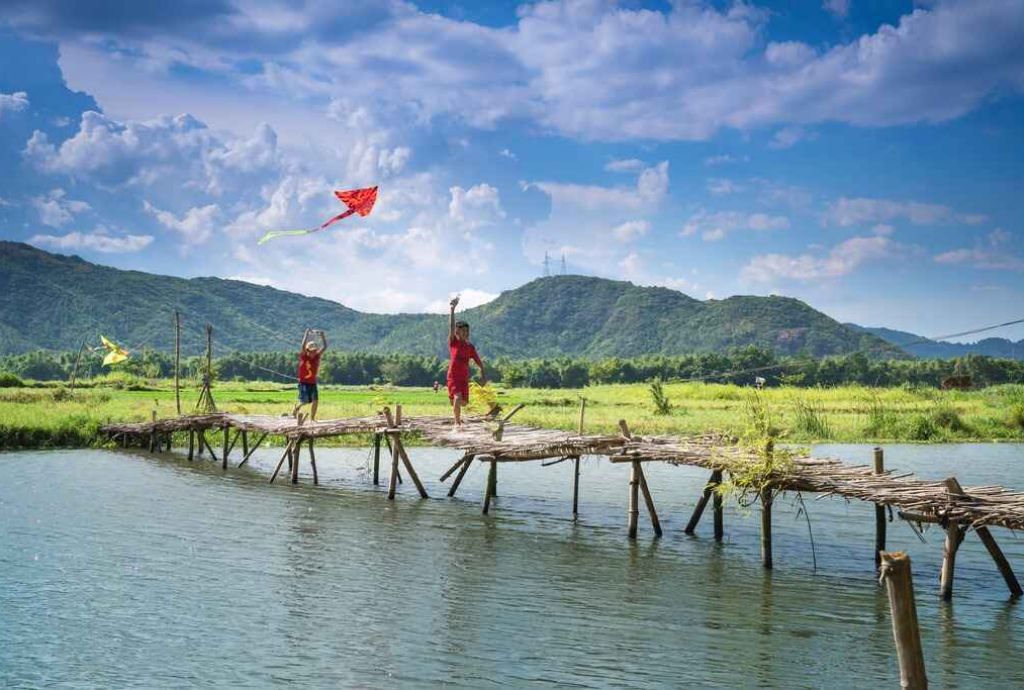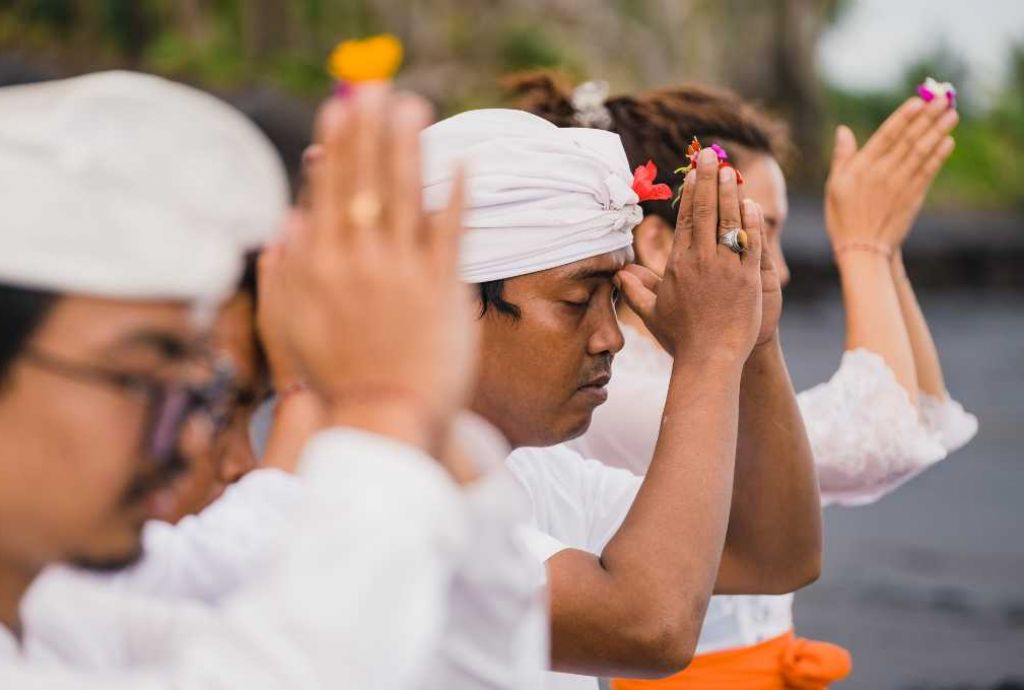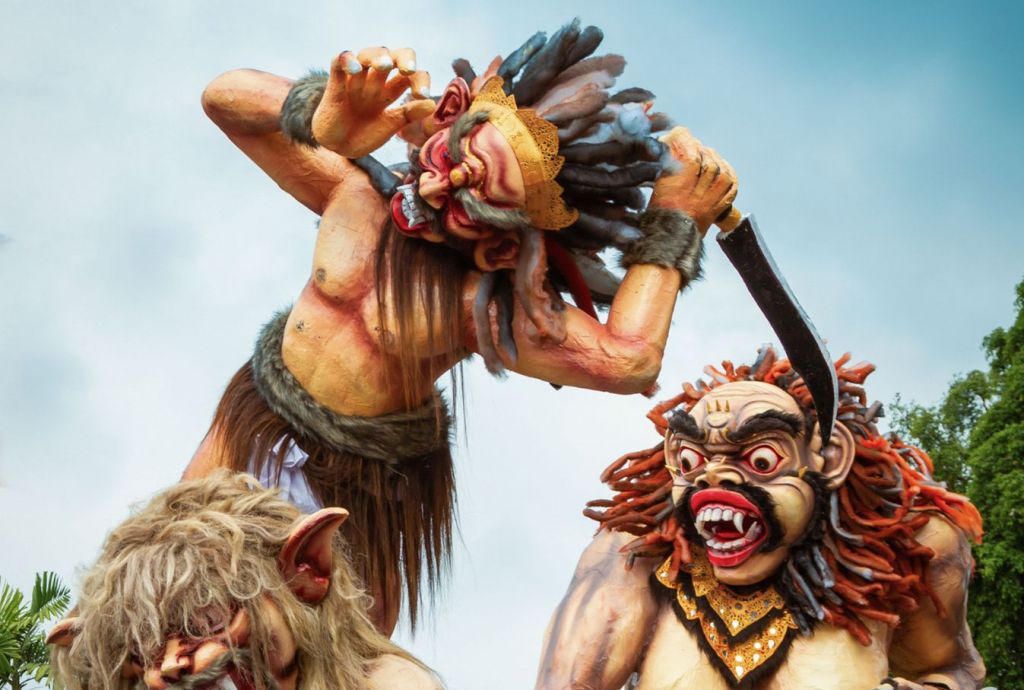
Four Names Bali

Four Names in Bali: Balinese Naming Traditions
Yell “WAYAN!” on a crowded street and observe how many people are looking at you! Have you ever wondered why it seems like there are only four names in Bali? This article will shed some light on the naming customs of this unique island.
How Balinese Names Work
In Bali, a name isn't just a label, but has deep meaning, often reflecting a person's caste, birth order, and gender. In the past, castes were used to categorize people according to their role in society. Today, however, these castes are maintained mainly to preserve family lineage.
Balinese names are a combination of the person's ancestor's caste, gender, and birth order.
Caste-Based Names
Balinese society has traditionally been structured into four castes, each with its own set of names:
1. Brahmana: The highest caste, typically consisting of priests and scholars. Men often have names starting with "Ida Bagus," and women with "Ida Ayu."
2. Ksatria: The warrior caste, including royalty and nobility, often uses names like "Gusti Ngurah" for men and "Gusti Ayu" for women. In this caste, you might also encounter names like Cokorda, Anak Agung, Dewa, and Desak.
3. Waisya: This merchant and artisan caste traditionally employed names beginning with 'Ngakan,' 'Kompyang,' 'Sang,' and 'Si.' However, these names are becoming less common.
4. Sudra: The lowest caste, typically composed of laborers and farmers. Names for males start with “I,” and for females with “Ni,” followed by the order of birth. For instance, "Wayan" for the first-born, "Made" for the second, and so on. About 90% of the Balinese population falls into this category.
The significance of these caste classifications has dwindled in contemporary Balinese society as many traditional rules, such as assigning specific professions to particular castes, have become obsolete. For instance, it's no longer uncommon to find someone named "Ida Bagus" working in the hospitality industry or even "I Wayan" serving as Bali's provincial governor.
Birth Order-Based Names
Birth order plays a significant role in Balinese names, leading to a relatively small pool of names that are frequently recycled:
1. The first-born child can be named Wayan or Putu, which works for both sexes. Other variations include “Gede” (meaning "big" for males) and “Luh” for females.
2. The second child is often named Made, or "Madé." Variations include Nengah and Kadek.
3. The third child might be named Nyoman or Komang, derived from the word ‘Anom’ meaning young.
4. The fourth child is named Ketut.
5. For families with more than four children, the cycle repeats, with the fifth child receiving the same name as the first, followed by additional variations like “Alit” or “Balik.”
And that's how names work in Bali
Topic Categories
- All 280
- Uncategorized 6
- Bali Villa 20
- Bali Politics 6
- Bali News Update 7
- Bali Shopping 3
- Bali Tourism 34
- Bali Spirituality 2
- Bali Beauty and Fashion 0
- Bali History and Culture 23
- Bali Property Appraisal 1
- Bali Property Financing 3
- Bali Property Insurance 1
- Bali Property Management 5
- Bali Environment 10
- Bali Pets 2
- Bali Health and Wellness 6
- Invest in Bali 20
- Bali Local Services 5
- Bali Food & Dining 8
- Bali Home Improvement & Design 6
- Bali Legal Tips 7
- Bali Neighborhood Guides 11
- Bali Property Market Trends 13
- Bali Property Advice 56
- Bali Attractions 12
- FAQ 2
- Living in Bali 29
Topic Tags
- All 280
- Uncategorized 36
- Bali market report 1
- Villa for sale Canggu 4
- Villa for sale Uluwatu 4
- Bali Rentals 1
- Buying Process 6
- Labuan Bajo 0
- Bali Hospital 3
- Bali School 3
- Bali Beach 7
- Co-working Space 3
- Petitenget 1
- Australia 0
- China 2
- Bali Wedding 1
- Bali Flights 4
- Retire in Bali 4
- Nyepi 2
- Bali Villa Sale 18
- Bali Visa 4
- Bali Travel 23
- Villa Rental 7
- Airbnb 0
- PT PMA 3
- Bali Zoning Law 1
- Bali Tax 3
- Bali Property 50
- Double Six 0
- Sunset Road 0
- Nyanyi 1
- Legian 1
- Beach Club 4
- Oberoi 0
- Batu Bolong 3
- Batu Belig 0
- Business 2
- Legal 10
- Investment 31
- Tourism 44
- Travel 12
- Jimbaran 4
- Denpasar 2
- Seseh 2
- Eid al Adha 1
- Ascension Day 0
- Easter 0
- Vesak 0
- Islamic New Year 0
- Eid al-Fitr 1
- International Labor Day 0
- Independence Day 2
- Day of Silence 0
- Galungan Day 1
- Valentine 2
- Christmas 4
- New Year 4
- Lunar New Year 2
- Bali Market Trends 12
- Bali Art & Culture 18
- Bali Home Design 9
- Bali Health & Wellness 6
- Bali Food and Dining 10
- Bali Pets 3
- Bali Lifestyle 25
- Rice Field Front 1
- Jungle View 1
- River Front 0
- Rice Field View 3
- Ocean View 4
- Private Pool 0
- Fix and Flip 1
- Fixer-Upper 0
- Hotel & Resort 1
- Guest House 0
- Street Front 0
- Residential Zone 0
- Touristic Zoning 0
- Freehold 4
- Long Lease 7
- Short-Term 1
- Minimalist Villa 0
- Luxury Villa 7
- Turnkey Villa 3
- Residential Complex 0
- Exclusive Listing 0
- Off-Plan Property 4
- Studio 0
- Loft 0
- Apartment 8
- Villa 15
- Land 6
- Beachfront 3
- Family Villa 0
- Retirement Villa 1
- Investment Villa 22
- Digital Nomad 0
- Commercial Property 3
- Eco-friendly 0
- Contemporary Style 0
- Modern Style 1
- Javanese Style 0
- Rustic Style 0
- Traditional Style 0
- Bohemian Style 0
- Mediterranean Style 1
- Balinese style 1
- Nusa Penida 1
- Lombok 2
- Gili Island 3
- Amed 0
- Tabanan 1
- Cemagi 4
- Nusa Dua 6
- Sanur 4
- Umalas 4
- Berawa 5
- Ubud 3
- Tanah Lot 1
- Kuta 4
- Pererenan 5
- Uluwatu/Bukit Peninsula 15
- Seminyak 5
- Canggu 25
Relevant Articles you may like
About Bali Home Immo
Established in 2009, Bali Home Immo is the first real estate agency in Canggu with more than 7000 Bali properties listed in its database. Bali Home Immo (PT. Bali Properti Kontruksi) is a licensed property agency (SIUP-P4 certified) located in Bali, Indonesia and have been successfully operating as a trustworthy and reputable real estate agency with more than 13 years of experience. Long-standing partnerships and a committed, dedicated team are the driving force behind the work that takes place every day at Bali Home Immo.
As a member of the Real Estate Broker Association of Indonesia (AREBI), Bali Home Immo Property offers luxury real estate across the region to a local and international client base. Catering to a wide range of property requests, the team will ensure they can find a property, land or residential listing, to match each client’s personal requirements.
We have curated a wide selection of properties ranging from the land for sale, villas for sale and rent, as well as commercial space rental in Bali's most in-demand areas including Canggu, Seminyak, Pererenan, Umalas, and Uluwatu. Not only Bali, but our connection also reaches other popular destinations in Indonesia including Gili Islands, Lombok, Labuan Bajo, and more.
We also provide professional marketing services that will showcase the best of your Bali properties to more than +160k social media followers and maximise the potential to find buyers looking at villas for sale in Bali. With a thorough knowledge of the Bali property market inside-out, we deliver the most professional and data-driven valuation of your property at the most competitive price for your Bali properties.
Our expertise in the local market and extensive network affiliated with 93 local and international partners including Goplaceit.com, Rumah123, Kangaloo, Luxury Estate, and many more will also help you bring global exposure to your real estate investment and find your dream Bali property. Looking to buy villas for sale in Bali? Check out our online catalogue of Bali real estate and follow us on social media for updates.
Map
Send an Enquiry
Property Search
Sell/Rent My Property
Please fill this form and our listing agents will contact you to visit your property and/or give you a price valuation






